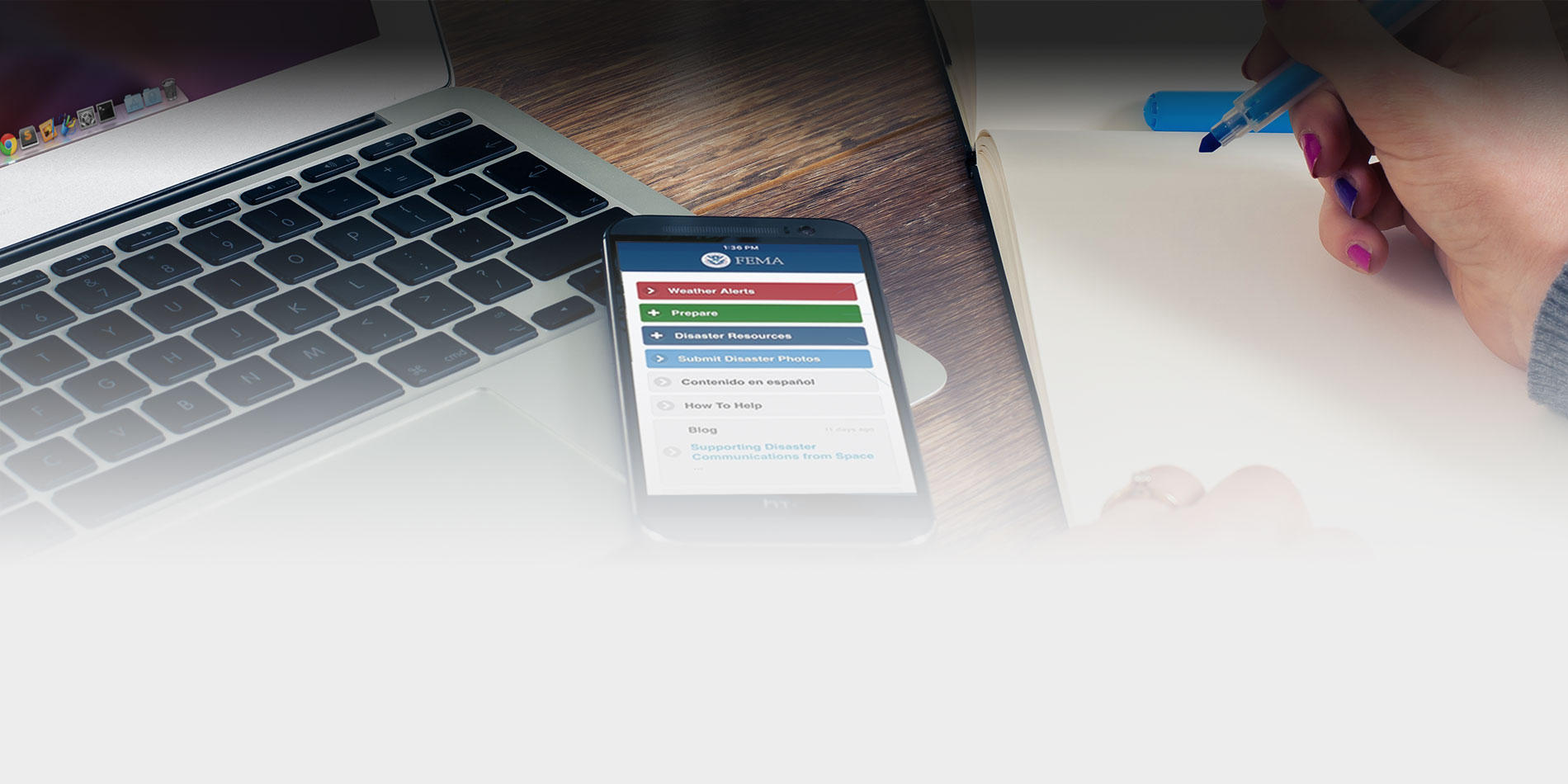Get Tech Ready
Technology has made it easier than ever to prepare for emergencies, but it can be unreliable during emergency circumstances if you haven’t planned to keep your gadgets protected and powered up. Here are some tips to make sure you are tech ready:
Be informed
- Register your mobile phone number(s) with the county to receive alerts and warnings: http://chaffeesheriff.org/communication/everbridge.
- Download the FEMA app. Receive weather alerts from the National Weather Service for up to five different locations anywhere in the United States.
- Sign up for FEMA text messages. Use your cell phone’s text messaging capability to receive text message updates from FEMA (standard message and data rates apply). Here are basic commands to get started:
- To sign up to receive preparedness tips: text PREPARE to 43362 (4FEMA)
- To search for open shelters (for disaster survivors): text SHELTER and a Zip Code to 43362 (4FEMA)
- List of all keywords you can subscribe to: text LIST to 43362 (4FEMA)
- To unsubscribe (at any time): text STOP to 43362 (4FEMA)
- Before a disaster, follow local government on social media to stay up-to-date with official information before, during, and after a disaster. Sign up for Twitter Alerts from trusted government agencies to get notified when critical information goes out. Visit the Alerts setup page of the agency you want to receive notifications from. For example: twitter.com/fema/alerts)
Make a plan
-
Use text messages, social media and email to connect with friends and family
during emergencies. Please minimize voice calls on your cell phone during emergencies.
- Mobile networks can become overwhelmed during emergencies, making it difficult to place and receive phone calls. Text messages require less bandwidth, which means they are able to be transmitted more reliably during situations when many people are trying to use their mobile phones at the same time.
- Social media channels such as Facebook and Twitter can also be an effective way to update family and friends during emergencies. Facebook’s Safety Check feature allows users to easily post a status update indicating that they are safe during a time of disaster.
- Consider an app like Life360 to know where your family members are, inform them, and call for help with a couple of clicks. (No product endorsement)
- Register with American Red Cross’s Safe & Well site to let family and friends know you’re okay. After registering, you can select a message to let family and friends know you’re OK. Concerned family and friends can search this list to find their loved one’s first name, last name, an “as of date” and the “safe and well” message.
-
Have an emergency charging option for your phone and other mobile devices. Smartphones have become a vital tool to receive emergency
alerts and warnings, so it’s important to make sure you can keep them powered up in
an emergency. In Puerto Rico, after hurricane Maria, cell service came
up before electricity, so portable solar charger/batteries saved the day
for some people who thought ahead.
- At home: Prior to severe weather, make sure that all of your electronic devices are fully charged. If the power goes out, preserve battery power by minimizing device use. Keep a back-up power source on hand to recharge your phone so that you can stay connected even during an extended power outage.
- In your car: Keep a portable phone charger in your vehicle at all times, and consider purchasing a back-up power supply to keep in your vehicle as well.
- Change the settings on your phone to low power mode or place it on airplane mode to conserve energy.
-
Store important documents in a secure, password-protected jump drive or
in the cloud.
- There are a number of productivity apps for mobile devices that make this easier than ever, using your phone’s camera as a scanning device. Capture electronic versions of important documents such as insurance policies, identification documents, and medical records. Don’t forget to include your pet’s information.
- Back-up your computer to protect photos and other personally important electronic documents.
- Scan old photos to protect them from loss.
- Keep your contacts updated and synced across all of your channels, including phone, email and social media. This will make it easy to reach out to the right people quickly to get information and supply updates. Consider creating a group list of your top contacts.
- Create a group chat via a texting app or a thread for family/friends/coworkers to communicate quickly during a disaster.
- Most of the major insurance companies offer a phone app that will give you access to your policies, numbers, claims filing, etc., even when there isn’t an emergency.
- Sign up for Direct Deposit and electronic banking through your financial institution so you can access your payroll funds and make electronic payments wherever you are. Federal benefit recipients can sign up by calling (800) 333-1795 or at GoDirect.org.
